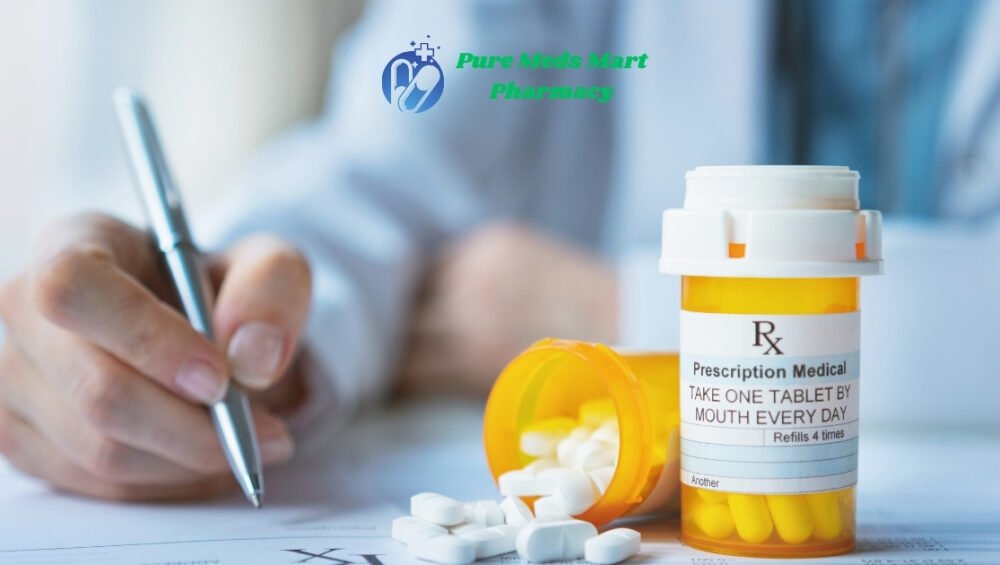Managing prescription medications is crucial for ensuring they are effective and safe. Whether you’re taking one medication or several, following the proper steps can help you stay healthy and avoid complications. This article will guide you on how to organize and manage your medications efficiently.
1. Follow the Prescribed Dosage
One of the most important things to do is to take your medications exactly as prescribed by your healthcare provider. Here’s why:
- Consistency: Missing doses or taking more than prescribed can lead to health complications, such as worsening symptoms or adverse side effects.
- Effectiveness: Prescription medications work best when taken at the correct dosage and time intervals.
- Safety: Some medications need to be taken with food or on an empty stomach, and deviating from this may reduce effectiveness or cause stomach irritation.
Make sure you understand the instructions from your doctor or pharmacist and ask questions if anything is unclear.
2. Set Up a Medication Schedule
Creating a medication schedule is helpful, especially if you are taking multiple prescriptions. You can use the following tools:
- Medication Apps: Apps like MediSafe or MyTherapy can remind you when it’s time to take your medication.
- Pill Organizers: Weekly pill organizers are a simple, effective way to sort your medications and ensure you take the right dose at the right time.
- Reminders: Set alarms on your phone or use sticky notes as reminders for taking medications.
3. Store Medications Properly
Proper storage of medications is important to maintain their potency and prevent damage. Follow these tips:
- Cool, Dry Place: Most medications should be stored in a cool, dry place, away from sunlight and moisture.
- Avoid Bathrooms: Humidity in bathrooms can degrade medication. Instead, store your medicine in a bedroom drawer or kitchen cabinet.
- Check Labels: Some medications may need refrigeration. Always follow the storage instructions on the label.
4. Monitor Side Effects
Understanding potential side effects is crucial to safely managing your medications.
- Common Side Effects: Some medications may cause drowsiness, nausea, or dizziness. If these are listed on your prescription, take precautions (e.g., avoid driving if drowsy).
- Serious Side Effects: If you experience any severe side effects like chest pain, breathing difficulties, or severe allergic reactions, seek medical attention immediately.
It’s also important to report any unusual reactions to your healthcare provider so that they can adjust your treatment plan if needed.
5. Stay Organized with Refill Reminders
Running out of medication can disrupt your treatment plan. Set reminders to refill your prescriptions a few days before they run out:
- Automatic Refills: Some pharmacies offer automatic refills, so you never miss a dose.
- Online Pharmacies: Ordering from online pharmacies like PureMedMarts can save you time by delivering medications to your door. You can set up reminders for future orders through their system as well.
6. Know the Interactions
Certain medications can interact with others, including over-the-counter drugs, supplements, and even certain foods. Be aware of these:
- Medication Interactions: Always inform your doctor of all the medications and supplements you’re taking to avoid harmful interactions.
- Food Interactions: Some medications may have specific dietary restrictions. For example, certain cholesterol medications should not be taken with grapefruit juice.
- Consult Your Doctor: Before starting any new medication or supplement, consult your doctor or pharmacist.
7. Keep a Medication List
Maintaining an updated list of all your current medications, including dosages, is a good practice. This list should include:
- Prescription medications
- Over-the-counter drugs
- Vitamins and supplements
- Herbal products
Share this list with your healthcare provider during visits so they are aware of all medications you are taking. In case of emergency, this list can be invaluable to medical professionals.
8. Stay Informed
Being knowledgeable about your medications helps ensure that you take them correctly and safely. Always read the medication labels and instructions provided. If you ever have questions or feel unsure about your prescriptions, don’t hesitate to contact your pharmacist or healthcare provider for clarification.
9. Dispose of Medications Safely
When medications expire or are no longer needed, they should be disposed of properly. Throwing them in the trash or flushing them down the toilet may harm the environment or lead to misuse.
- Take-Back Programs: Many pharmacies and community programs offer medication take-back services.
- FDA Guidelines: Follow FDA-approved methods for disposing of medications, such as mixing them with undesirable substances (like coffee grounds) and sealing them in a plastic bag before discarding.
Conclusion
Managing prescription medications properly can protect your health and prevent any potential complications. By following these steps, you can ensure that you are taking your medications safely and effectively. Whether you’re on long-term treatment or just need a temporary prescription, staying organized and informed is key to successful medication management.
For more convenience, consider using trusted online pharmacies like PureMedMarts to order your medications. They offer timely deliveries, easy refills, and a wide range of products to meet your healthcare needs.

